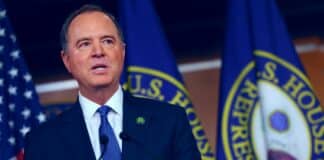The spending package rushed to President Biden’s desk throws money at the COVID-19 pandemic, the economy and a massive expansion of the federal welfare state. Here’s what is included in the legislation:
• Direct checks of $1,400 for individuals earning up to $75,000 per year and couples earning up to $150,000 per year. The payments fully phase out for individuals making more than $80,000 per year and couples making more than $160,000 per year.
• $350 billion for states and localities.
• Extension of federal unemployment benefits, with $300 added to weekly jobless checks until Sept. 6.
• $10,200 tax exclusion for unemployment compensation for households earning less than $150,000 per year.
• More than $125 billion for K-12 schools.
• $86 billion for multi-employer pension plans.
• $60 billion for coronavirus testing and vaccine distribution and procurement.
• Extension of a 15% increase in SNAP benefits (food stamps) through September.
• More than $30 billion for transit agencies.
• $28.6 billion for restaurants through a new grant program.
• More than $21 billion in emergency rental assistance and more than $9 billion for mortgage and utility assistance.
• $15 billion for Economic Injury Disaster Loan (EIDL) grants for small businesses.
• $10 billion to expand domestic production of personal protective equipment, vaccines and medical supplies.
• Increase in the child tax credit from $2,000 to $3,000 and an increase to $3,600 for children under the age of 6.
• $39 billion for child care, including almost $24 billion for stabilization grants and nearly $15 billion for the child care and development block grant program.
• $35 billion for health insurance premium subsidies for people who buy health insurance on Obamacare exchanges. Waives the 400% federal poverty level cap on eligibility for the subsidies.
• $3.9 billion to increase availability of mental health and substance abuse treatment.
• $800 million to buy U.S.-grown food products for distribution to developing countries.
• $270 million for the National Endowment for the Arts and National Endowment for the Humanities.
• $200 million for libraries through the Institute of Museum and Library Services.
• $200 million for “worker protection enforcement activities” through the Department of Labor.
• $175 million for public broadcasting.
• $100 million for air quality and pollution mitigation efforts by the Environmental Protection Agency.
• $50 million for the U.S. Consumer Product Safety Commission to combat consumer-product-related injury or death.
• $30.4 million for Federal Trade Commission efforts to combat COVID-19-related scams.
Source: Senate Majority Leader Charles E. Schumer’s office






